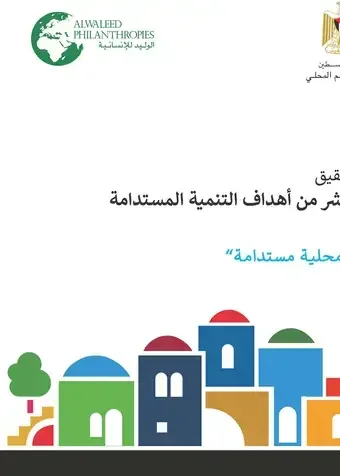
The Goal 11 Status Report was prepared in participation of various government, municipal, and national and international non-governmental organisations. Report preparation and all meetings and consultations conducted were done by UN-Habitat Palestine in coordination with the Ministry of Local Government. The report covers 10 targets and 15 related indicators which fall under Goal 11; the majority of which were measured at the local level and progress reported at the national level. The report also lists the policy priorities of the Palestinian government for the upcoming period, which are based on the results and the needed policy change and are crucial to advance the attainment of Goal 11. Important to note that the Palestinian government’s National Development Plan (NDP) 2021-2023 and its priorities are directedly aligned with Goal 11. The NDP’s priorities are also reflected in the Palestinian governments’ sector strategies for local government, housing and public works, transportation, environment, land, culture, youth and gender equality, amongst others. Alignment and attainment of Goal 11 targets with national priorities and interventions varies considerably.
On Goal 11, Palestine reported on various strategies, plans, and programmes put in place in response to pressure from rapid population growth and urbanization on public services, infrastructure and the environment. In this regard, key challenges included housing shortages, shrinking public space, rising property prices, the proliferation of informal human settlements, increased vulnerability to disasters, waste management, water drainage issues, congestion, and air pollution. Palestine highlighted the need to strengthen data and monitoring and referred to their lack of capacity in integrated urban planning mainly due to the geo-political situation on the ground.